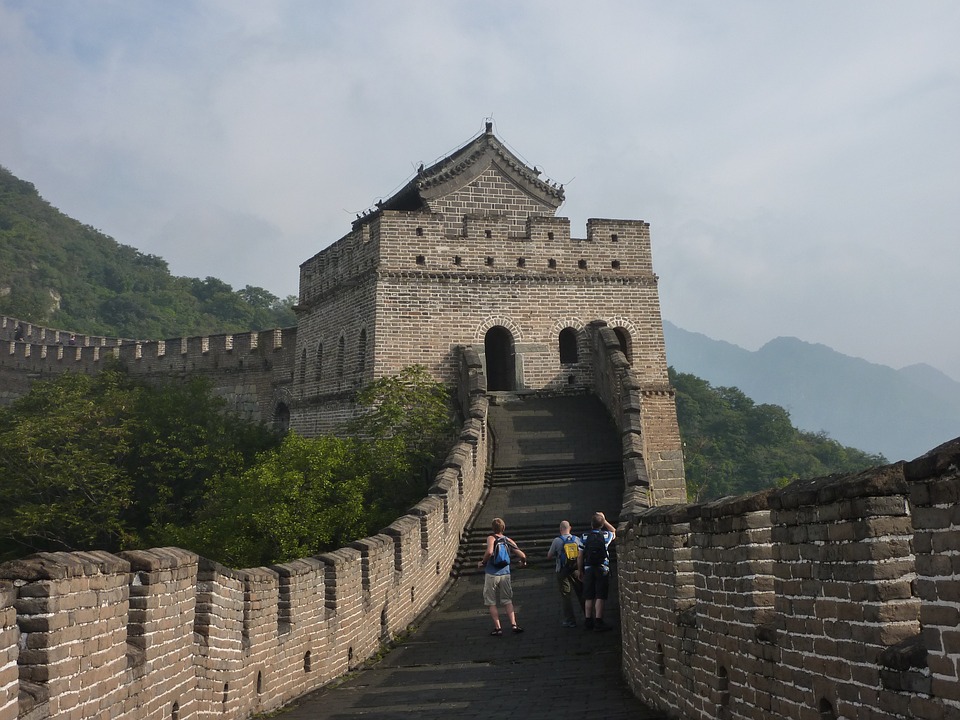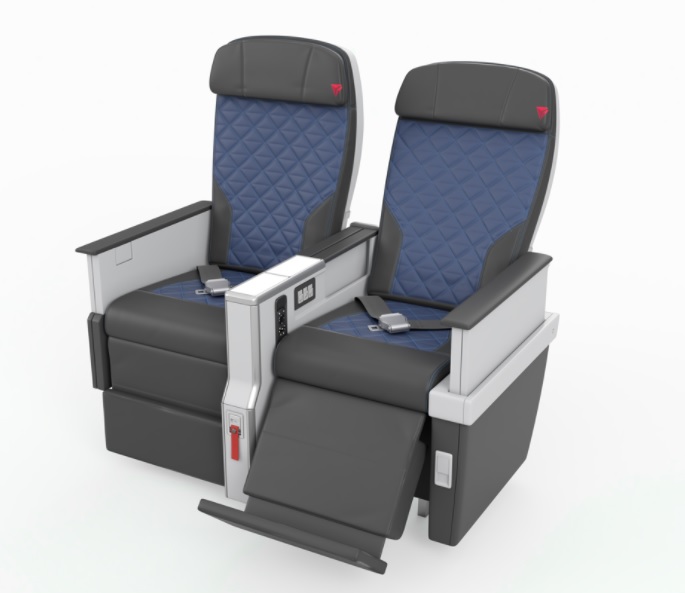Last Week, as part of the Million Mile Madness challenge, I flew to China twice without a visa. On the first visit, I simply transferred to another flight without leaving the airport. On the second visit, though, I entered China and stayed the night. While I’ll describe both experiences below, the purpose of this post is primarily to cover my experience with actually entering China via a 24 hour Transit without Visa.

In-Airport Transfer: Guangzhou
For my first visit to China last week, I simply transferred from one international flight to another. I flew into Guangzhou on Kenya Airways from Bangkok, and departed a few hours later on China Southern to Hanoi. Since I had no plans to exit the airport, this was easy. I simply followed signs for Transfers and lined up to show my passport and boarding pass for exiting the country. I did hit a bit of a snag because my Vietnam visa hadn’t been set up correctly, but that has nothing to do with entering China. Once I showed them that my Vietnam visa was valid for about 30 more minutes after arrival, they let me through to the international departures area.
24 hour Transit without Visa: Hangzhou
General Info
China allows visa free transit for most international visitors (including Americans) for 24 hours to most Chinese cities, for 72 hours for major Chinese cities, and for 144 hours for a select group of Chinese cities. The primary rules are that you must enter from and depart to different countries outside of China. For example, you can’t originate from Ho Chi Minh Vietnam and then return to Hanoi Vietnam, but you could enter from Ho Chi Minh and then exit to Seoul South Korea (for example). Additionally, once in China, you can’t visit other Chinese provinces during your transit-stay.
Since my stay in Hangzhou was planned for only one night, I only needed a 24 hour transit.
Find the transit without visa desk
When I arrived in the Hangzhou airport, I found a big desk that appeared to be set up for the Transit without Visa process, but no one was there. I expect that the process would have been easier if I had arrived while the desk was staffed.
Find the right arrival/departure card!
In the regular immigration area I was directed to fill out an arrival card. I waited in the very slow immigration line and when I finally made it to the front I was told that I had filled out the wrong card. The correct card had two sections – Arrival, and Departure – with a perforation between them. I filled out the arrival section and was careful to note that the purpose of the visit was “transit”. I was given the departure part of the card to fill out and hand in when leaving the country the next day. With my now correct arrival/departure card in-hand, I returned to the immigration counter.
Taiwan may be problematic
The next issue was that the immigration official didn’t seem to think that Taiwan (my next stop) fulfilled the requirement to exit to a country outside of China. To be clear: Taiwan does qualify, but immigration officials at less popular international airports may not be familiar with all of the rules. In my case, I was flying onward the same day from Taipei to Seoul, South Korea. I showed my boarding documents for onward travel to Seoul and I was good to go. I shouldn’t have been required to show this extra flight, but it smoothed the process so it worked for me. I expect that if you’re transiting through a more popular international airport like Shanghai or Beijing you won’t have any trouble exiting to Taiwan. Otherwise, if your next destination is Taiwan, you may want to try to find official Chinese documentation showing that Taiwan is a valid international destination so that you can present that at immigration.
General tip: Have paper copies ready
Regardless of whether you’re transferring in-airport or exiting the airport for 24 or more hours, I highly recommend arriving with all of your documentation on paper — not just on your phone. This includes:
- The boarding pass you used to get to China
- The boarding pass for departing from China (if you’re not able to get this in advance, at least bring a printout of the ticket confirmation)
- A valid visa for the country you are departing to after China, if needed. For example, US citizens are required to have a visa to enter Vietnam.





Hi, I need to discuss my scenario, We (family of 5 people having Pakistani passports and PR holder of Australia) are travelling from Brisbane to Lahore. Our transit time is around 23 hrs. we are getting the hotel from China Southern Airlines but we are not sure about the Visa. After discussions at different levels, I have been told that it will depend upon the immigration team at airport. Can any one share their experience or guide me how can I get the 24 hr transit visa?
Were your flights on the same ticket or did you have separate PNRs for arriving and leaving China?
Separate PNRs each time
I also fly to China on 2 separate PNRs. LHR-HKG-PEK on Cathay then 20 hrs later PEK-AMS on KLM.
Also, my middle name is on Cathay ticket, but not on KLM ticket. It is on my passport though. Would it be a problem?
Yes, it absolutely will be a problem if it doesn’t match your full name on your passport. I had to repurchase several legs of this challenge for the same reason.
So since my AF/KLM award ticket never asked for middle name – First & Last name only. I have flown with AF/KLM with just that info many times without problem. Now if I rebook the ticket with KLM, what should I enter for the First name section – First Name = First + Middle name?
Hello,
I am writing to seek clarification regarding my eligibility for a transit visa. I am a Turkish citizen currently residing in Milan, and I have a connecting flight itinerary as follows:
Milan to Chongqing (International Flight) (05.00 am entry to China)
Chongqing to Shenzhen (Domestic Flight)
Shenzhen to Manila, Philippines (International Flight) ( 23.25 pm departure from China)
Given this itinerary, I need to transfer from Chongqing to Shenzhen on a domestic flight and then wait for approximately 13 hours in Shenzhen for my next flight.
Am I eligible for the 24-hour visa-free transit, considering my need to change ports from Chongqing to Shenzhen? Can I apply for temporary entry permit in order to have that domestic flight ?
I would greatly appreciate your guidance on how to proceed under these circumstances.
Thank you in advance for your prompt response.
I imagine that Greg has no idea what the rules are for Turkish citizens. You might want to check with a Chinese embassy / consulate in Turkey.
For these transits, did they stamp your passport at all for one or the other? I have limited pages in my passport currently.
When I was only transiting without leaving the airport, no they didn’t. But when I got the 24 hour transit visa, yes they stamped it
Curious to know why you would not want to get a Visa as it seems like that may make things easier? Are they hard to obtain or expensive?
It can take a fairly long time to get one and I started planning the Asian part of this trip just a few days before I started flying.
I’ll piggyback here to say that it can alternatively take very little time to get one if you’re able to go to a Chinese consulate. My wife and I got our 10-year visas for China same-day at the Chinese consulate in New York years ago. There’s a fee to expedite and it’s not explicitly guaranteed that you’ll get it same-day, but I believe that it usually does work.
According to my quick Google (I did not fact-check this), there are Chinese consulates in New York, NY; Chicago, IL; San Francisco, CA; Los Angeles, CA; Houston, TX. I don’t know for sure that they all process same-day visa applications, but it can be worth looking into it if you need one in a hurry. In Greg’s case, since he wasn’t going to spend more than 24hrs in China anyway, I imagine it probably wouldn’t make sense to travel to a consulate, pay the visa fee, and pay the fee to expedite. But YMMV.
It’s worth noting that there are multiple official Chinese sources stating that you can go to another Chinese airport and transit from there (i.e. take a domestic flight from Guangzhou to Shanghai) as long as you leave China within 24 hours. This has been backed up by others who have done this during the challenge.
It is possible to stay almost 7 days, as the 144-hr clock only starts ticking at midnight AFTER the day you enter. So if your flight arrives early morning, it gives you one extra day.
I’m trying to maximize my days when buying plane tickets. I’m looking at a flight that gets in at 6am on the 2nd. With the new 240-hr TWOV, seems like I just need to have a flight out before midnight on the 12th? Thanks.
“The stay period specified in the policy begins at 0:00 on the day after the day of entry “
Google “China 240 hour transit visa”, pick the result from us.china-embassy.gov.cn
Thanks. I did end up finding it written out officially. Nice to be able to get that bonus day 🙂
You were having trouble probably because of the “can’t go to a diffent province during transit” rule
The People’s Republic of China considers the Republic of China (Taiwan) as a part of the People’s Republic of China, and therefore, not an international destination. That may be why they wanted to see the departure from Taiwan to South Korea.
In fact, the U.S. does not have an “Embassy” in Taiwan, we have an “American Institute in Taiwan”.
This may also be the reason why the People’s Republic of China is “understanding” of Russia’s invasion of parts of the Ukraine that are of “Russian” heritage. China wants Taiwan under it’s control, either by Taiwan voluntarily becoming part of the People’s Republic of China or by force. China is patiently watching the world’s reaction and will consider this in planning it’s course of action to achieve this goal.
I think Greg is aware of the politics at play — he was stating that the official written policy is that Taiwan counts in this case, not his opinion that it should count.
I’d also note that I noticed Taiwan listed as “international” several times throughout my recent trip to China. For instance, the international cruise port in Xiamen had signs pointing to “International” ferries. The sign said “International, including Hong Kong / Macau and Taiwan”. Again, I am certainly aware of the dynamics involved — I’m just replying to make it clear that Greg wasn’t arguing his opinion but rather he knew what the official policy could be and speculated that staff at airports that handle relatively few of these transit visas may not be aware (for the reasons you’re stating), whereas staff at airports that more routinely handle these are likely aware of the official policy that a flight to Taiwan would count.
I did this a few years ago in Shanghai as a 144 hour visa free transit to go from New York to Shanghai to Bangkok. I spent a few days in Shanghai so wanted to add some additional information:
-if you leave from the US to China they may not believe you can do a visa free transit. The check in desk at American was going to refuse to let me check in for my flight until I insisted on speaking to a supervisor where I showed them the government website that describes this option
– 100% agree have everything printed out both regarding your hotel stay in China if you have one and proof of your upcoming travel out of China. They looked at EVERYTHING and wanted the address and phone number of my hotel in Shanghai as well as my next flight confirmation and even looked at the info for my hotel in Bangkok.
– be prepared to wait for awhile after you land. I had to wait for over an hour for one person to question just two people in front of me in line about their documents
– you must tell your hotel in China that you are there on a visa free transit, they will register you with the police station (probably to make sure you don’t leave the area you are supposed to stay in). I stayed at the Andaz in Shanghai and they knew what I was talking about; they reported my stay to the authorities and sent them a copy of my passport including the page that was stamped on my arrival to China.
The visa/passport scanning and police registration bit is required at all hotels for all travelers, it’s not anything specific to the visa free transit (and so you shouldn’t need to specify at checkin that you’re transiting without a visa, unless they ask for your visa before finding your entry sticker)
Visa free transit in China has been around since 2016 so I wouldn’t expect to run into issues at checkin at this point, but as with anything there’s always a chance you’ll run into an inexperienced agent.
Even in Italy hotels are required to submit a copy of your passport to the local authorities. It’s not an unusual requirement.